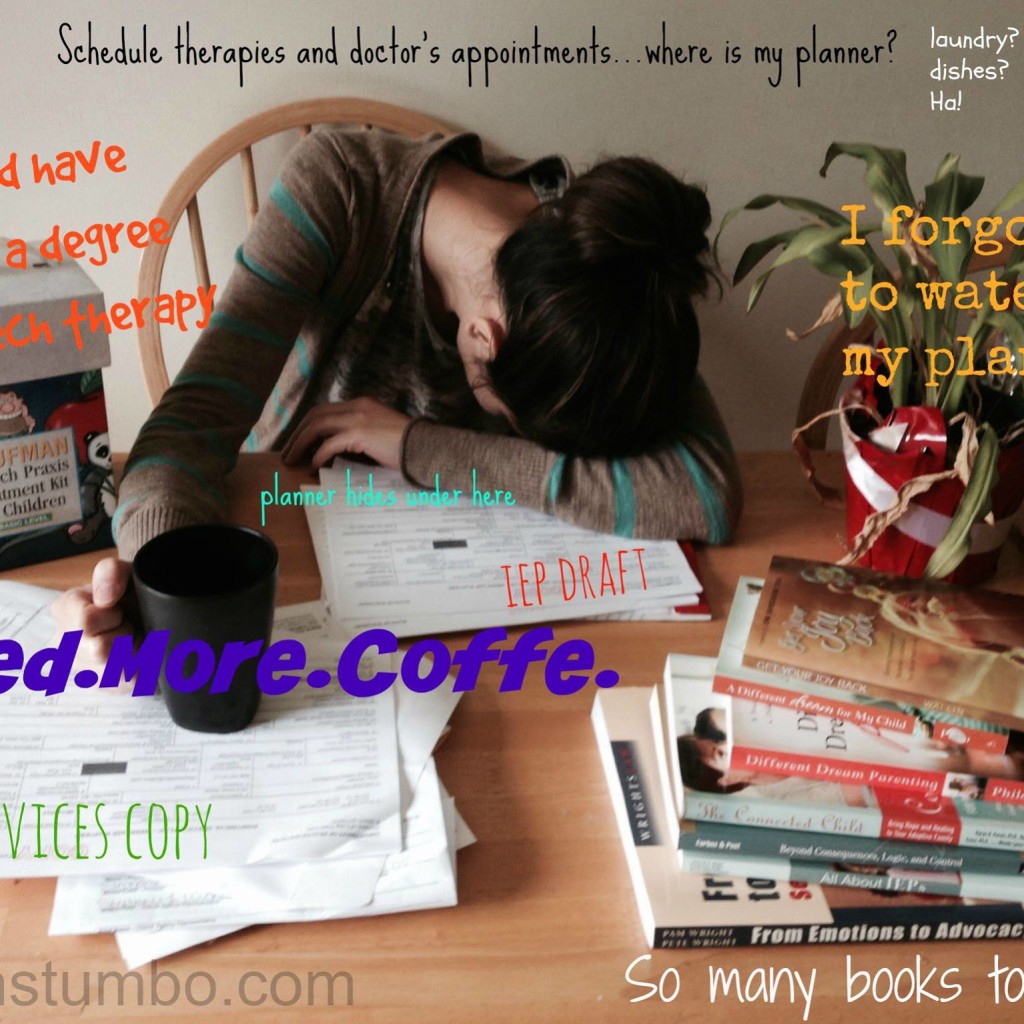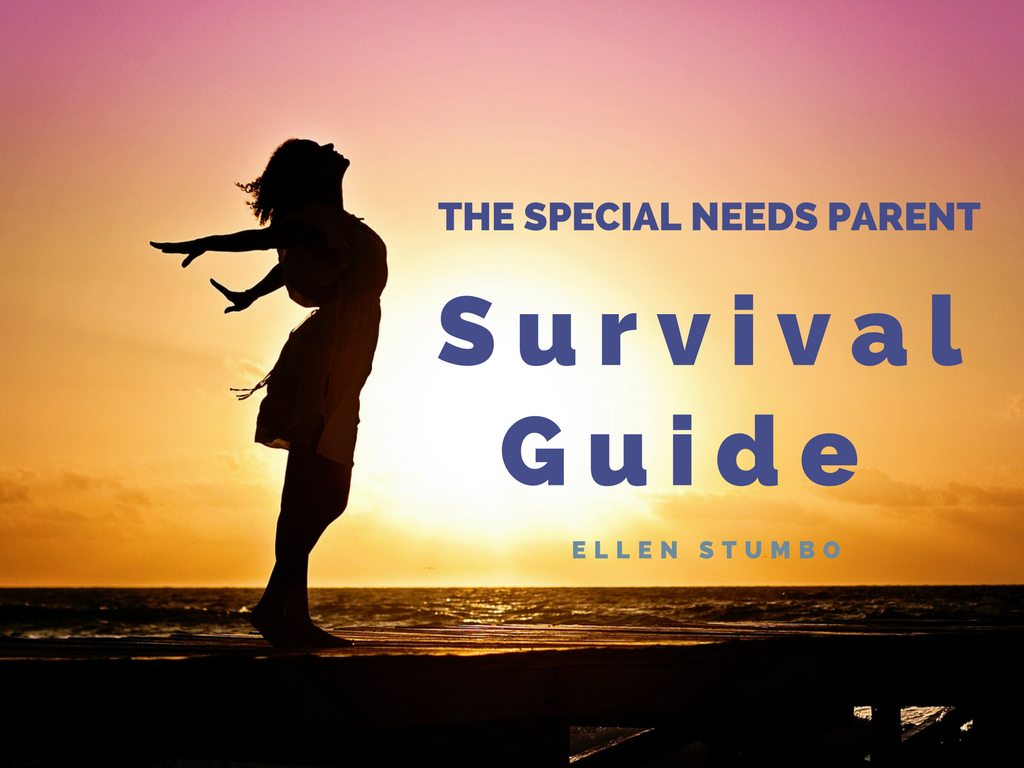When you parent kids with disabilities, not only do you have the same responsibilities as other parents, you may also be dealing with medical emergencies, therapies, insurance woes, and perhaps even family and friends who don’t get it.
There are several things that could make our life easier and more manageable.

I have several friends who parent kids with disabilities, and from our conversations, these are the things we wish we had, or things we will keep fighting for:
1. Sleep.
The lack of sleep begins when you baby is born. While most kids eventually learn to sleep through the night, that is not always the case for children who may have medical conditions that affect their sleep or require medication to be administered throughout the night. I am someone who needs sleep to function. Naps are my favorite.
2. Respite.
Nobody can give, give, give without becoming depleted. Respite allows us to take a break. But sometimes it’s hard finding the people to care for our children.
3. Friends.
We need friends who are willing to listen without giving advice. We just need someone who is willing to be there for us, through the good and the bad. A friend who will celebrate with us and who will understand some days are just plain hard and we need to vent.
4. Time alone.
I love my kids (and my husband) but sometimes I just want to be on my own, reading a book, or taking a walk. Time alone is self-care, and we need it in order to be better parents.
5. Date night.
For those of us with significant others, sometimes our conversations center around the kids. Date nights are important to reconnect and dream together. Also, it is nice to go out without the kids.
6. A vacation.
I know this sounds trivial, but when we parent kids with disabilities, sometimes we spend a lot of time going to doctors and specialists. A vacation is good for everyone in the family — and opportunity to take a break and create memories outside of routines. Even for children who thrive in routines, a change of setting can be well received when a child knows what to expect and preparing ahead of time. There are some great places that are sensory friendly.
7. Weekend away.
A weekend away from the kids. Not justa. Few hours, but a few days. My husband and I take three nights away each year to celebrate our anniversary. It rarely falls on our actual anniversary. But we have made this a priority and we plan each year ahead of time so we can make sure childcare won’t be an issue. We are fortunate to have family that is happy to help and loves our kids. I have a friend who takes turn with her husband for a weekend away a year (due to childcare issues). This mini vacation for one is also restful.
8. Positive encouragement and validation.
Sometimes we wonder if we are doing this parenting thing right. It makes a difference when people close to us notice what we are doing well and encourage us to keep going. This parenting gig is not easy, having people in our corner cheering us on reminds us we are not alone.
9. Time with typical children.
When you have more than one child — and you have a child that naturally requires more attention — balancing quality time with each child can be a challenge. In our family, we do a lot of one-on-one time with each kid, which then allows for our typical child to have undivided attention. We make this a priority.
10. A supportive school.
We need educators to believe in our kids. We also need them to follow our child’s IEP. We need a supportive school, and we will fight for our children’s education if we have to.
Related: Why Our Kids With Disabilities Deserve Better ‘Life Skills’ From School
11. A support team.
We need to have “go to” people when challenges arise. People who are willing to step in and get messy when needed.
12. Good insurance.
Having good insurance makes a huge difference for many of our kids. But good insurance is a need for the parents too. We need to take care of us.
13. Mental health care.
A study in 2014 found that:
“Cross-sectional analyses indicated that parents of a child with special care needs reported poorer self-rated mental health, greater depressive symptoms, and more restrictions in instrumental activities of daily living (IADL). Parents of a child with special health care needs had greater increases in depressive symptoms over time and greater declines in instrumental activities of daily living than parents of typically developing children. Perceived control was a robust predictor of all health outcomes over time.”
NIH Public Access
So yeah, we need mental health care because we are more likely to struggle with mental health issues.
Related: When Mama Needs Help
14. Jobs for our adult disabled children.
Our kids with disabilities will grow up to be adults with disabilities. We worry about their livelihood, as there aren’t many jobs available to them. We want our kids to have meaningful employment.
15. Maid and cook.
Yes, it is a need. At least this would make our lives so much easier!
16. Better personal health.
We do so much for others, we sometimes fail to take care of us. Some of us wish we were in better shape, and perhaps some of us are seeing the effects of neglecting our own health. We need to be in better personal health so we can care for our families.
Can you relate? What would you add?
Become a Patron!***
Let’s connect on Facebook
Special Needs Parents, Are You Surviving?
I created a guide with 13 practical ways to help you find peace in the midst of chaos, opt in to make sure you get a copy of this freebie!



Thank you for this so much! People don’t realize how often we are depleted as parents of special needs kids. They act like they understand, but until you have lived this, trust me, you don’t understand! When my son was a little bit older, he still wasn’t sleeping well. One little kink in his sleeping pattern, and we could be up all night. I’d go to work the next day feeling sick where I was up all night. Or, the times when coworkers look at you like you’re crazy when you stress about your child getting the flu or some simple sickness, because for someone with a disability, the flu could mean a hospital stay. I love my little boy with all my heart, and I would lay down my life for him! This means I fight for what’s right for him too. Therefore, people also look at you like you’re crazy when you tell them you just had to get very hateful with someone at the doctor’s office, school, or billing company because they wouldn’t listen to you. Thank you for writing this!
Yes, this! All of it. Self Care for sure. Drink more water (I’m working on that one) and learning to breathe. I’ve been trying to focus on doing simple breathing exercises even when I’m just in the car. And time. We all need more time 🙂
M. describes most people, who, for whatever their reasoning is, don’t want to or can’t express care or concern at a deeper level, for us, the caregiver. It could be my sister, my child is their niece, doesn’t matter, they don’t want to be bothered, or recognize something they’re in perfect denial over… whatever. Their issue, not mine. It takes time though. Time to work through feelings.
I find people employ certain conversational segues to “round off” the conversation. A very common one: “I can imagine.”
“No, actually, it’s impossible to imagine,” I calmly tell them, and they quickly retract, and the conversation closes naturally. They don’t want to, or can’t express care or concern at a deeper level.
Please, People, think before you speak. Even out of ignorance, how can you imagine the neurosurgeon telling me, “Your newborn is going to die so I recommend you institutionalize her.” ? You can not imagine enduring the 3 major brain surgeries my daughter went through by the time she was 24 months of age. You can not imagine the therapist telling me, “Your child is 8 years old now and is not going to get any stronger and there is no therapy in the world that can help her.” You can not imagine my daughter’s teacher and her 1:1 aide maintaining a medically fragile classroom environment that was causing my daughter to have seizures and not telling anyone about it for months. You can not imagine working with my daughter’s educational advocate, who, undisclosed to me at the time, had a conflict of interest with the school district, the same school district he use to work for as their SPED Director. Ahhh, so THAT’S why xyz happened or didn’t happen when the advocate supposedly tried to go to bat for my daughter.
Ellen’s #3- Friends: We need friends who will listen without giving advice…. who will understand some days are just plain hard and we need to vent…” So, from across the miles Ellen, thank you.